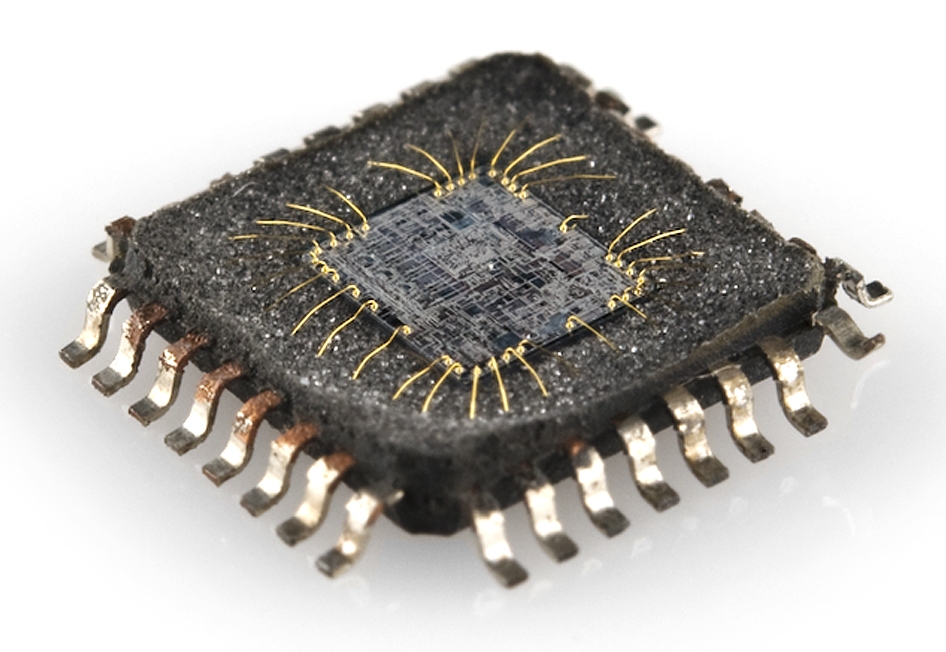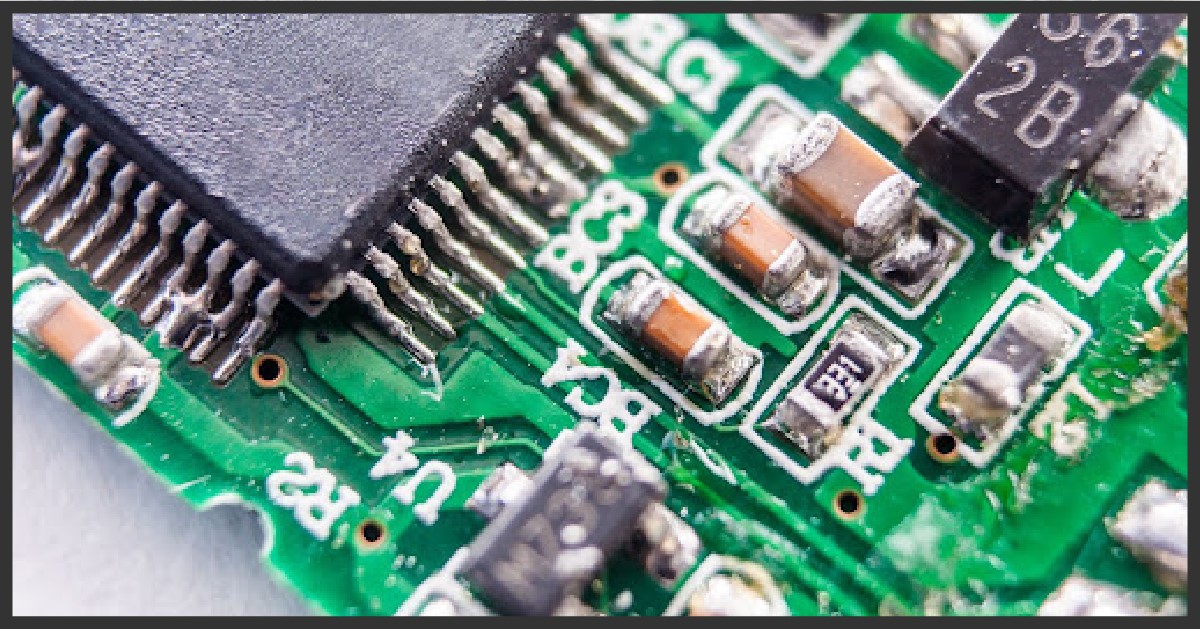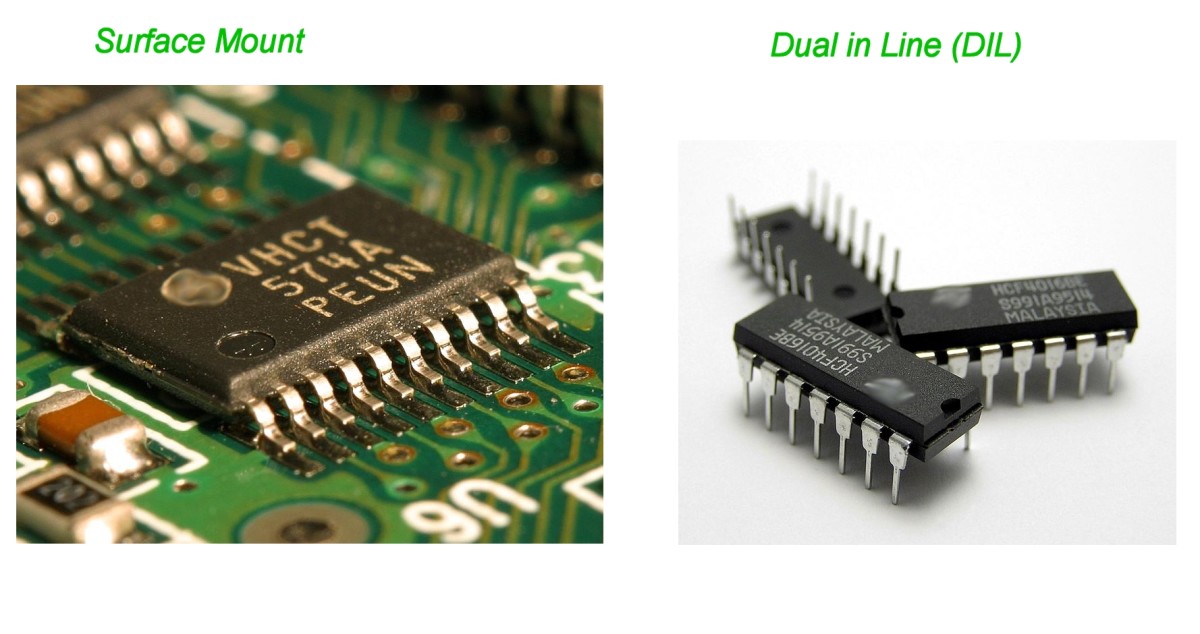Recommendation Tips About Is An IC The Same As A Chip

PCB Vs IC What Are The Differences IBE Electronics
Unraveling the Mystery
1. Delving into the Core Components
Ever found yourself wondering if an "IC" is just another fancy name for a "chip"? You're not alone! These terms often get tossed around interchangeably in the world of electronics, and it can be a little confusing. Think of it like asking if a square is the same as a rectangle. Technically, a square is a rectangle, but a rectangle isn't always a square. Similar situation here!
Let's break it down. An IC, which stands for Integrated Circuit, is essentially a miniature electronic circuit crammed onto a small piece of semiconductor material, usually silicon. This is where the magic happens! These tiny circuits can perform a multitude of functions, from simple logic operations to complex calculations that power our smartphones and computers.
Now, the word "chip" is a more general term. It's often used as a shorthand for IC, and you'll frequently hear them used together. However, "chip" can also refer to other small pieces of semiconductor material that might not be as complex as a full-blown IC. For example, a simple diode on a small piece of silicon could technically be called a chip.
So, while almost all ICs are chips, not all chips are necessarily ICs. Think of "chip" as the broader category, and "IC" as a more specific type within that category. Kind of like how all Labradors are dogs, but not all dogs are Labradors, right?

Peeking Inside
2. Exploring the Inner Workings
Okay, so we know what an IC is, but what's actually inside? Imagine a bustling city, but instead of people and cars, you have billions of transistors, resistors, and capacitors, all interconnected by tiny wires. These components work together to perform the desired function of the IC. It's truly an amazing feat of engineering!
The manufacturing process for these things is incredibly complex, involving etching, doping, and layering materials with extreme precision. It's all done in cleanrooms to prevent even the smallest speck of dust from ruining the delicate circuitry. These cleanrooms are so sterile, they make operating rooms look like playgrounds! Seriously impressive stuff.
ICs come in all shapes and sizes, from the tiny little ones that control LEDs to the massive processors that power your gaming rig. The complexity of the IC determines its capabilities and its cost. The more transistors packed in there, the more it can do, but also the more challenging (and expensive) it is to manufacture.
The applications of ICs are virtually limitless. They're in everything from your washing machine to your car to the satellites orbiting the Earth. Our modern world would simply not exist without these marvels of miniaturization. So, the next time you use your phone, take a moment to appreciate the tiny ICs working tirelessly inside!

What IC Chips Are Used For & Why They Matter ProEx
Chip Off the Old Block
3. Navigating the IC Landscape
Just like there are different breeds of dogs, there are also different types of ICs, each designed for specific purposes. Some are built for speed, others for low power consumption, and still others for handling specific types of signals.
For instance, microprocessors are the brains of computers, responsible for executing instructions and performing calculations. Memory chips store data, allowing your computer to remember things even when the power is off. Analog-to-digital converters (ADCs) translate real-world signals, like temperature or pressure, into digital data that a computer can understand. And there are countless other specialized ICs for everything from audio processing to network communication.
Another important distinction is between analog and digital ICs. Analog ICs work with continuously varying signals, while digital ICs work with discrete values (typically 0s and 1s). Many devices use a combination of both types to achieve their functionality. For example, your phone uses analog ICs to process audio signals from the microphone and speaker, but it uses digital ICs to perform complex computations and store data.
Choosing the right type of IC for a particular application is crucial. It's like choosing the right tool for a job — you wouldn't use a hammer to screw in a screw, would you? Similarly, you wouldn't use a low-power IC for a high-performance application. Selecting the appropriate IC can significantly impact the performance, efficiency, and cost of your electronic device.

What Is An Integrated Circuit (IC) & Why There A… CircuitBread
Beyond the Basics
4. Understanding the Implications
So, you might be thinking, "Okay, ICs and chips, got it... but why should I care?" Well, understanding the difference (or lack thereof) can be helpful in a few ways.
For starters, it can make you sound more knowledgeable when discussing electronics. Imagine being able to confidently explain the difference between an IC and a chip to your tech-savvy friend! Plus, if you're involved in any kind of electronics design or repair, knowing the terminology is essential. You wouldn't want to accidentally order the wrong part because you didn't understand the difference between a specific type of IC and a generic chip.
Furthermore, a deeper understanding of ICs can help you appreciate the incredible complexity of the technology that surrounds us. Think about how much processing power is packed into your smartphone, all thanks to these tiny little chips. It's pretty mind-blowing when you really stop to consider it.
Ultimately, understanding the nuances between ICs and chips is about expanding your knowledge and appreciating the incredible ingenuity of the engineers who design and manufacture these essential components. And who knows, maybe it will even inspire you to learn more about electronics and start tinkering with your own projects!

Common Questions, Clear Answers
5. Addressing Your Burning Questions
Let's tackle some frequently asked questions to solidify your understanding of ICs and chips.
6. Are all microcontrollers considered ICs?
Absolutely! A microcontroller is a specific type of IC. It's essentially a small computer on a single chip, containing a processor core, memory, and input/output peripherals. Think of it as a Swiss Army knife for electronics projects.
7. Why are ICs often referred to as "silicon chips"?
That's because silicon is the most common semiconductor material used in their manufacturing. Silicon is abundant, relatively inexpensive, and has excellent electrical properties, making it ideal for creating the transistors and other components that make up an IC. So, "silicon chip" is just another way of saying IC, emphasizing the material it's made from.
8. Can I build my own IC at home?
While it's theoretically possible, it's practically impossible for the average hobbyist. The manufacturing process requires extremely specialized equipment and incredibly precise control over environmental conditions. Plus, the feature sizes on modern ICs are so small that you'd need electron microscopes just to see what you're doing! However, you can definitely learn to design circuits and program microcontrollers, which is a great way to get started in electronics.
